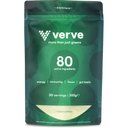1. Overtraining
Overtraining is a frequent culprit behind the sensation of heavy legs when running.
This occurs when you push your body beyond its limits without allowing adequate time for recovery.
When you subject your muscles to continuous strain and stress, they don’t have the opportunity to repair and rebuild, leading to chronic fatigue.
Over time, this can result in muscle soreness, decreased performance, and that pervasive heavy feeling. It's essential to balance intense training sessions with rest days and lighter workouts to ensure your muscles get the rest they need to perform optimally.
Generally, experts recommend 5 to 7 days rest time after a marathon. However, if you’re going for a lighter session like a 20 minute jog, that time can usually be cut down to 3-4.
But make sure you feel fully received before lacing up your running shoes again.
2. Improper Warm-up
Skipping a proper warm-up can set the stage for a difficult run.
Warming up primes your muscles, joints, and cardiovascular system for the physical activity ahead.
If you begin running without adequately preparing your body, your muscles might remain stiff and unresponsive, leading to an early onset of fatigue and heaviness. A good warm-up should include dynamic stretches and light aerobic activities to increase blood flow and flexibility. This preparation helps to reduce the risk of injury and ensures your muscles are ready to handle the demands of your run.
3. Dehydration
Hydration plays a crucial role in muscle function and overall performance.
When you’re dehydrated, your blood volume decreases, making it harder for your heart to pump oxygenated blood to your muscles.
This can lead to premature muscle fatigue and a sensation of heaviness in your legs.
Additionally, dehydration can cause an imbalance in electrolytes, which are essential for muscle contractions and energy production. To avoid this, ensure you hydrate adequately before, during, and after your runs. Pay attention to your body’s signals and consider using electrolyte-rich drinks if you’re running for extended periods or in hot conditions.
4. Poor Sleep
Sleep is when your body undertakes most of its repair and recovery processes.
Insufficient sleep can negatively impact your energy levels, coordination, and muscle function.
When you’re not well-rested, your muscles don't repair as effectively, leading to a buildup of fatigue. This can make your legs feel heavy and sluggish during your runs. Aim for 7-9 hours of quality sleep per night to support optimal muscle recovery and overall performance. Establishing a consistent sleep routine can also help improve the quality of your rest.
5. Inadequate Recovery
Just like sleep, adequate recovery between workouts is vital for muscle health.
If you don’t allow sufficient time for your muscles to recover from previous activities, you’ll likely experience ongoing soreness and heaviness.
Muscles need time to repair and strengthen before they’re ready to be challenged again. Incorporate rest days into your training schedule and consider activities like stretching, foam rolling, and light yoga to facilitate muscle recovery.
Monitoring your training intensity and volume can help prevent overuse injuries and promote better muscle health.
6. Excessive Strength Training
While strength training is beneficial for runners, excessive strength training can lead to muscle fatigue and heaviness.
Overloading your muscles with too many strength sessions without appropriate recovery can cause muscle soreness and reduced performance. It’s essential to find a balance between strength training and running, ensuring that you have adequate recovery time. Integrate strength training into your routine in a way that complements rather than hinders your running performance.






